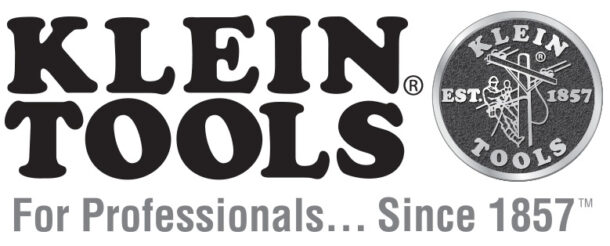Even as concern around white-collar jobs grows due to AI and economic uncertainties, Jobber’s report reveals hesitancy among Gen Zs to pursue trades careers Jobber, the leading provider of home service software, today released The Annual Blue-Collar Report: Gen Z and the Trades Need Each Other. The report, based on survey responses from 1,000 students in the Read more
building the trades

Even as concern around white-collar jobs grows due to AI and economic uncertainties, Jobber’s report reveals hesitancy among Gen Zs to pursue trades careers

Jobber, the leading provider of home service software, today released The Annual Blue-Collar Report: Gen Z and the Trades Need Each Other. The report, based on survey responses from 1,000 students in the U.S. aged 18-20, provides insight into how Gen Z navigates education and career choices, as well as offers solutions on how to inspire and encourage younger generations to consider taking advantage of all that blue-collar careers have to offer.
According to The Annual Blue-Collar Report, 76% of Gen Zs agree there is a stigma associated with going to vocational school over a traditional four-year university. This reality threatens our homes, economy, and the livelihoods of younger generations.
“If you own a home, you have a problem,” warns Sam Pillar, CEO and co-founder of Jobber. “While there is some renewed interest among the younger generation to pursue blue-collar careers, there’s still far too much work homeowners need done, and not enough workers to do it. We need to do a better job showing Gen Z how incredible the opportunities in the trades are, and encouraging them to consider that path.”
The U.S. housing stock is aging rapidly, with the median age of homes reaching 40 years. This is a critical problem as the U.S. is experiencing a labor shortage across most industries as labor force participation declines and the workforce ages and retires. In addition, the U.S. Bureau of Labor Statistics states that employment demands in trade industries are often greater than or pacing the 3% average of all occupations, representing not just a gap, but a growing chasm.
Key findings from the report provide deeper insights into why Gen Z is not pursuing blue-collar careers and how society can encourage younger generations to consider them. Despite the growing stigma and misconceptions that Gen Z has, The Annual Blue-Collar Report clearly shows that they actually do want blue-collar careers, and just don’t know it yet.
The “American Dream” needs a blue-collar rebrand
Gen Z has been taught to measure success through a white-collar lens, but AI, the economy, and layoffs are changing their minds. Their concerns around white-collar careers are clear.
- One-third (33%) of Gen Z say that white-collar desk jobs are less stable today than they were for their parents’ generation.
- 41% of Gen Z agree that the potential for AI to replace jobs has made it harder to achieve the “American Dream” and 46% believe there will be fewer future job opportunities as a result.
- 70% of Gen Z say they are not optimistic about the future of the economy.
- When asked what would make a trade career more appealing, Gen Z described what blue-collar professions already offer, including flexible work hours (73%), job stability (61%), and overtime pay (58%).
Gen Z’s biggest career influences are letting them down
Parents have blue-collar blindness, schools deserve a failing grade for blue-collar education, and Hollywood is doing hard work dirty.
- Family (51%) was identified as the biggest influence on Gen Z and the careers they chose to pursue by a significant margin.
- 61% of Gen Z say their parents haven’t spoken to them about vocational school or told them not to consider it.
- Just 17% of Gen Z say they have been educated on the benefits of vocational training following high school graduation. This was significantly lower than bachelor’s degree, community college, military service, and entrepreneurship.
- More than a third (35%) of Gen Z say television shows and movies have influenced the careers they want to explore and 47% describe trade professionals as being generally portrayed negatively (incompetent, unhealthy, and/or unhappy) in shows and movies.
We simply need more women in the trades
While many workforces have evolved to accommodate the modern gender distribution of labor, the trades have yet to establish this balance.
- Nearly half (48%) of Gen Z agree that women are discouraged from pursuing trade careers from a young age.
- 58% of Gen Z say that women face more discrimination within trade careers—compared to other career options—with the majority of women (68%) believing this compared to men (47%).
In addition to survey data and insights, The Annual Blue-Collar Report offers testimonials from people like 27-year-old commercial and residential electrician, Lexis Czumak-Abreu, who attests to the benefits of blue-collar work: “I studied pre-med in school, intending to become a surgeon but decided to become an electrician instead. Many people in my family are electricians, including my dad. The salary is great, the hours are stable, and the work is very gratifying!”
Finally, The Annual Blue-Collar Report highlights 10 specific calls to action for the general public, blue-collar professionals, policymakers and educators, and the media to help connect the dots between Gen Z’s fears and desires and the blue-collar opportunity in front of them, as well as eliminate the existing harmful stereotypes.
To access The Annual Blue-Collar Report Powered by Jobber, visit jobber.com/blue-collar.

Often in the house, some issues can ruin our staycation experience. The subjects include broken pipes and problems in the bathroom and toilet, which look simple but can make staying difficult. Consequently, in order to solve these problems, you need a plumber, and for that, a professional plumbing service is a must. More so if Read more
Often in the house, some issues can ruin our staycation experience. The subjects include broken pipes and problems in the bathroom and toilet, which look simple but can make staying difficult.
Consequently, in order to solve these problems, you need a plumber, and for that, a professional plumbing service is a must. More so if you are in Australia, where snakes, spiders, and other animals can clog the pipes of your house.
Do you know? The market size of plumbing services is 123 billion USD. Hence, it showcases that plumbing services around the world are a serious affair. Moreover, in Australia, the market size of plumbing services is 19.8 billion USD.
Subsequently, plumbing services in Australia are fairly new, with the market slowly taking pace by helping houses with serious plumbing issues. Furthermore, it helps legalize the service under the law by allowing people to hire the right individuals for the job.
Plumbing services include fixing broken pipes, clogged drains, and other washroom problems, making it one of the important and integral aspects of every housing in the country.
So, amidst all of these things, there are certain things that one should look for while hiring a professional plumber.

Things To Look For In A Professional Plumber
As discussed earlier, there are always issues with the toilet and pipes, which are as common as our normal daily activities. Hence, contacting a professional service will help you solve your home’s plumbing issues.
Here is the list of things you should for in a professional plumber.
Always Choose A Licensed Plumber
One of the things that you should look for in a professional plumber is that they should be licensed. This is important because it will showcase that they have received the right training and have the necessary knowledge of plumbing tools.
Therefore, you should hire a plumber who has insurance, as it will cure you from the legal issues. As plumbing is risky, you never know when one can get injured. This will cost you money and also a chance of getting riddled with legal complaints.
Furthermore, with a license, you can engage them in an intense plumbing job, where the rate of the risk. This is because their insurance policy has got them covered. Conversely, it will show that you will follow the government rules and regulations aligned with professional and non-professional plumbers.
So, when hiring a professional plumber, ensure they have proper insurance and license to give the best user experience.
Experience
Another key thing you should consider while hiring a professional plumber is their experience. In order to excel in plumbing services, one requires experience ranging from two to five years.
Therefore, when you are looking for a plumber, you should pay for experience. This is because they will know more about the tools and the intricate issues associated with toilet and plumbing pipes.
Often, there are issues that the newbies can’t recognize because they have not followed up with cases. This can cost you more damage and waste of money. So, in order to avoid this, it is better to hire an experienced person who knows about fixing things, mainly plumbing issues.
Further, when you are in Queensland, which is the hub of venomous snakes and spiders, experienced plumbers will ensure they can’t clog the pipes.
Budget
Monetary value is another indication that you should look for while hiring a professional plumber. Hence, before you hire a professional plumber, you should watch for their prices. This is because you don’t want to pay too much for their services.
Consequently, before hiring the services, you call them and let them review the house and the issues prevailing in the pipes and other parts of the house. This will allow them to set the exact price for the services.
Hence, you always contact a professional service, where the plumbers or the company gives value for their services.
Online Research
When you start looking for a plumber, you ask your family and friends to suggest a plumber to resolve your issue. Otherwise, what you can do is search for them on Google.
You will get all the necessary information there, following the reviews of please clients. This will be an added bonus because you will know about their services. Hence, it gives a suitable value for money.
Moreover, there is a high chance that you will get references from many plumbing companies on the Internet. They will give you the added knowledge of the high-quality plumbers who know the whereabouts of their job.
Choosing An Established Company
Another factor to consider while hiring a professional plumber is that you should look for an established company. Hiring a plumber from a reputed company is important, as it will help you select the best guy for the job.
Therefore, you should find a firm that has been in the job for several years and catered to a wide range of customers around the state. This will ensure they are trustworthy and you can expect a better job from them.
Conversely, you should hire plumbers from the startups, as inexperience may cost you a fortune and cause more damage to your property and assets. On the other hand, you should choose a company with brilliant customer care and good professionals who will give the best services.
You can do this by checking online. Larry Page and others have made an organization for you. In other words, you can choose Live Services Group, which provides same-day plumbing services in Australia.
Wrapping Up! Once And For All
In the end, we can say there is no such strict rule book to hire a professional plumber, but it is better to hire from a company, as it will give more value for money.
The services will be cheaper and with better customer service. Following this, they will provide you with licensed plumbers, ensuring they don’t have to face any legal charges. Lastly, it will ensure that your property is safe to use and reside.
Therefore, following the point discussed in the previous section to get better clarity on the matter.

Lowe’s Will Offer a Full Range of Klein Tools Products, Serving More Trades than Ever Before Lowe’s and Klein Tools, an American tool manufacturer since 1857, announced a partnership that will bring a significant presence for the iconic tool brand to the electrical and tool departments at Lowe’s. As a result, Lowe’s will offer the Read more
Lowe’s Will Offer a Full Range of Klein Tools Products, Serving More Trades than Ever Before
Lowe’s and Klein Tools, an American tool manufacturer since 1857, announced a partnership that will bring a significant presence for the iconic tool brand to the electrical and tool departments at Lowe’s. As a result, Lowe’s will offer the widest selection of Klein Tools products anywhere in the home improvement retail channel.
 Klein Tools products will be available in Lowe’s stores and on Lowes.com in the second half of 2023, with premium store placement across multiple product categories. Lowe’s initial selection of Klein Tools products will include hand tools, electrical test and measurement tools, followed by a multi-year rollout of new product innovations.
Klein Tools products will be available in Lowe’s stores and on Lowes.com in the second half of 2023, with premium store placement across multiple product categories. Lowe’s initial selection of Klein Tools products will include hand tools, electrical test and measurement tools, followed by a multi-year rollout of new product innovations.
“As the number one hand tool brand among electrical and HVAC professionals, Klein Tools strengthens our Pro brand and product lineup, and delivers immediate credibility across all trades,” said Bill Boltz, Lowe’s executive vice president of merchandising. “The addition of Klein will help drive excitement and traffic among Pro customers looking for market-tested innovation from a brand they trust.”
“Klein Tools is committed to serving professionals across the trades,” said Thomas Klein Jr., Klein Tools President, and COO. “This partnership with Lowe’s enables us to serve Pros with our wide array of products, including innovative new products designed to make work on the job easier, safer and more efficient.”
One of the most noteworthy impacts of the COVID-19 pandemic has been the national labor shortage and the widespread media attention it has earned. According to Newsweek, there were 10.4 million job openings in the United States in September, but fewer than 8 million unemployed workers. That gap has placed enormous stress on the overall Read more
One of the most noteworthy impacts of the COVID-19 pandemic has been the national labor shortage and the widespread media attention it has earned.
According to Newsweek, there were 10.4 million job openings in the United States in September, but fewer than 8 million unemployed workers. That gap has placed enormous stress on the overall economy, from manufacturing and distribution to the retail and service sectors, as suppliers struggle to meet consumer demand.
For those in the skilled trades industries, this story is familiar. They have faced a chronic version of the overall labor shortage for decades.

Demographic challenges and misconceptions
The average age of skilled workers is now 43, according to one estimate from Angi. With fewer young people entering the trades every year, the situation is expected to get worse. The approaching wave of baby boomer retirements will only add to the problem.
For manufacturing, construction, and field service companies, the skilled trades crisis poses major ongoing challenges. It’s hard to maintain productivity and customer service while you’re understaffed or experiencing frequent turnover. Projects are often delayed because workers aren’t available. Revenue is lost for multiple reasons: worker inexperience, inefficiency, long work hours, or jobs that have to be postponed or turned down.
Unfortunately, many high school students and recent graduates who might thrive in the trades never consider a career in those industries. The message that college is the only path to success has become ingrained in our culture in the last 30 years. Despite the rising cost of higher education and the increasing number of students who never earn a degree, the college journey has eclipsed all other options.
In addition to highlighting the labor crisis, recent circumstances have demonstrated that manufacturing, distribution, and residential and commercial service jobs are a critical part of the national economy. These industries played a key role in public health and safety during lockdowns and periods of social distancing and quarantines. Many products and services provided by the HVAC and PHCC industries proved to be essential during the pandemic and have remained critical economic drivers as communities have reopened.
This national spotlight on the essential nature of the trades offers an opportunity to reorient public perception and correct the misconceptions that have contributed to the skilled trades labor gap.

Closing the gap
In response to the growing labor gap, trade organizations have partnered in recent years with vocational schools, employers, manufacturers, and public agencies to promote the trades as a viable alternative to a four-year degree. Their combined efforts are focused on the many immediate advantages offered by a skilled trades career:
- High wages
- On the job or employer-funded training
- Lack of student debt
- Immediate available positions
- A wide variety of vocational options and career trajectories
- Entrepreneurial opportunities
Additionally, advocates and thought leaders are making the case for other long-term strategies that will create a more effective and reliable talent pipeline. Among those ideas is diversification. Many communities have traditionally been underrepresented in the trades; focusing recruitment, outreach, and marketing efforts in those communities can build trust and allow the trades industries to connect with vibrant new pools of talent.

Immediate solutions
Those efforts, however, will take time to pay off. In the meantime, employers are still faced with a labor crisis of historic proportions and the urgent need to operate efficiently in order to remain competitive in this challenging economic climate.
In order to maintain productivity throughout the remainder of the pandemic and during recovery, many employers are looking for immediate solutions. While there is no magic bullet that will compensate for a labor shortage, there are a number of new and emerging tools available that can help companies boost efficiency and productivity so they can continue to deliver results for their customers.
The pandemic has focused a spotlight on the importance of the technology revolution that was already underway among skilled service providers. Some of the major technology trends and developments that have been accelerated by the pandemic and its fallout are:
- Mobile and remote capabilities: As COVID-19 forced many employees across multiple industries to work cohesively without a physical office, technician mobile apps and other remote technologies have become invaluable to commercial contractors of all types. Today, various mobile applications give teams remote work capabilities that weren’t possible a decade ago.
- Modular construction: The modular construction market is seeing an increase in business, which is in response to combined cost-effective construction technology and labor shortages. Modular and offsite construction continues to grow and contribute to less expensive housing and commercial construction. In addition to their convenience, other benefits of modular projects include the ability to more effectively regulate worker safety within ventilated and climate-controlled workspaces. These advantages also further help workers comply with social distancing guidelines.
- Artificial Intelligence: Artificial intelligence (AI) is capable of lowering the cost of construction and service while helping teams successfully plan and schedule projects. AI is frequently used in software to conduct analyses and simulations in a variety of hypothetical situations and environments. In turn, AI is invaluable in developing new safety protocols and minimizing the risk of workplace injuries. Its role is expected to continue to rise in response to the workforce shortage exacerbated by COVID-19 shutdowns.
- Integrated software solutions: The number of contractors who still rely on pencil and paper or spreadsheets for record-keeping and accounting has steadily dwindled over the last decade, and sharply declined during 2020. Simply switching from manual job management to an enterprise solution can generate major gains for most businesses. A single all-in-one platform is critical for efficiency; requiring technicians to move back and forth between multiple apps not only takes up precious work time, it can serve as an obstacle to adoption.
- When actionable data from across departments is collected and accessible in real time, all parties involved in a project benefit. Up-to-the-minute insights and transparent communication empower purposeful, immediate decision-making and fast, accurate execution.
Resolving the labor shortage that has challenged the skilled trades will be a win not only for the industries involved. The long-term strategies currently being deployed will expand the choices available for young people and dismantle the preconceived notion that a college degree is required for success. By opening up opportunities for vocational training and apprenticeships in place of a university program, we can ensure young people are on the right track from the start. Presenting the trades as a viable option could also help reduce the national burden of student debt and alleviate college dropout rates.
In order to find and implement a comprehensive solution, it is imperative that we examine and assess our educational pipeline and deliver an authentic message about the advantages and opportunities of skilled trades careers. Innovation is the key to ensuring America’s workforce is prepared and supported.
For more information on this subject, visit www.buildops.com.

A female plumber’s tale sheds light on the fulfilling career to be had in the trades As Careers in Construction Month draws to a close, Reliance Worldwide Corporation (RWC) is committed to continuing its investment in the national initiative, which recognizes talent and career development opportunities throughout the building trades. Designed to engage prospective skilled laborers as Read more
A female plumber’s tale sheds light on the fulfilling career to be had in the trades
As Careers in Construction Month draws to a close, Reliance Worldwide Corporation (RWC) is committed to continuing its investment in the national initiative, which recognizes talent and career development opportunities throughout the building trades. Designed to engage prospective skilled laborers as well as current professionals, RWC remains focused on inspiring others to seek a career in the trades.
With a well-documented passion for this initiative – including its national partnership with the Home Builders Institute (HBI) which was announced at IBS 2021 – RWC has a continuous drive to learn as much as possible to help increase the talent pool. After recent participation in HBI’s Industry Workforce Roundtable, the biggest takeaway was clear: an undeniable need for increased industry diversity.

In a category with unfulfilled positions and untapped opportunities, RWC is doing its part to help by identifying and showcasing diverse talent, sharing their stories to inform and inspire others to start their career in plumbing. And through the partnership with HBI, RWC met Starr Delgado, a certified plumber and plumbing instructor at HBI’s Job Corps Plumbing Program.
Overcoming personal and professional challenges – including dropping out of school – led Delgado to pursue a career that could help to support her family. After researching career paths and identifying plumbing as the ultimate solution, Delgado began taking plumbing courses at HBI and was inspired by her plumbing instructor to come back years later to teach. Today, she owns her own home, her own car and supports her family through her plumbing career.
“The most rewarding thing for me is the students,” said Delgado. “You get to give back…the hardest of the hardest kids come through these doors, and they turn out to be something amazing.”
When asked about her experiences as an industry-leading woman and the advice she would give to others, she stated, “There’s always going to be challenges for women in the field. People are always going to say you can’t or you shouldn’t or don’t. But if you say I’m going to, I can and I will, you can do it. You just have to have some thick skin.”
By breaking through the stereotypes associated with plumbers, Delgado was able to achieve all that she wanted: the ability to support her family and a career she could be proud of. RWC plans to continue sharing similar stories to reach the younger generation, as well as diverse groups, in the hopes that they begin seeing the opportunities that could be had by pursuing a career in the trades.
